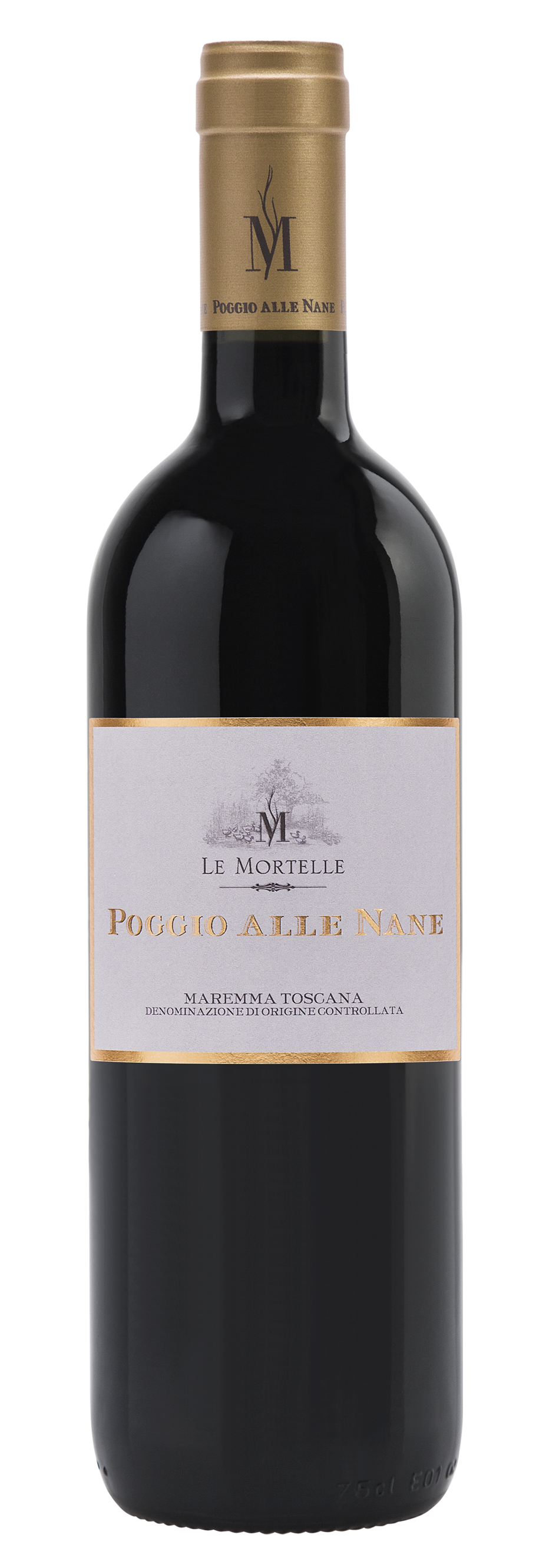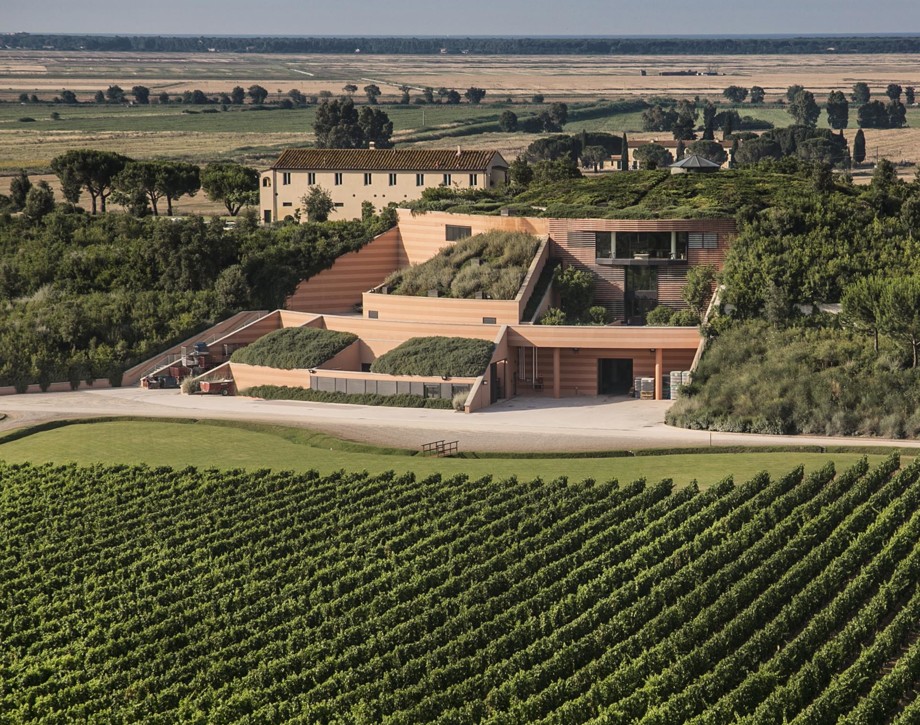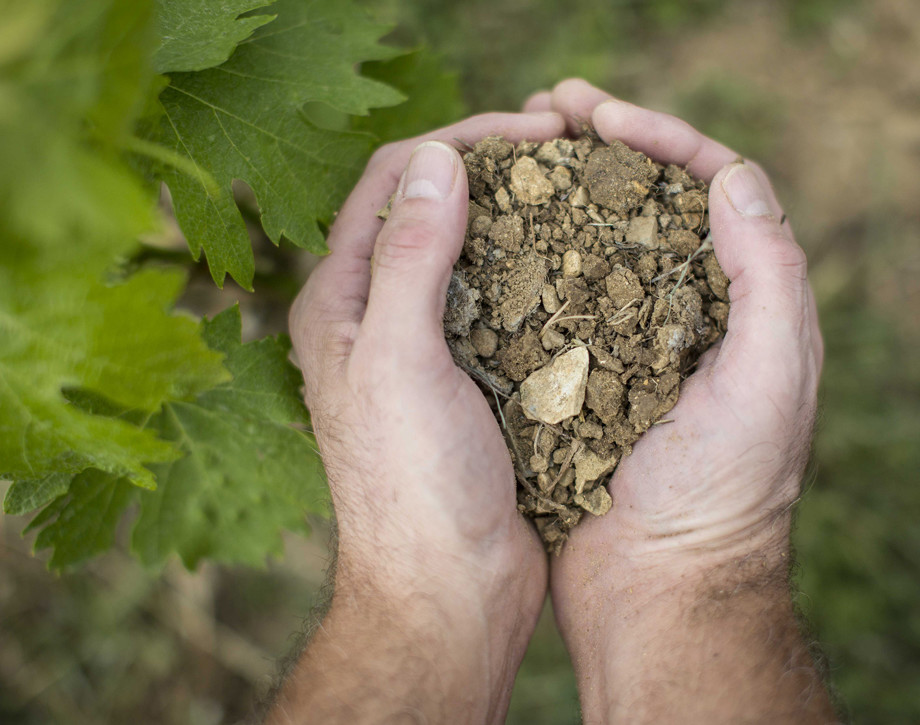Poggio alle Nane 2010
Climate
A particularly cold and rainy winter in 2010 delayed bud break and flowering and then fruit set. From July until late September the climate, instead, was particularly warm and dry. Given the good health of the vines, this led to gradual but complete ripening of the grapes, which gave wines of great integrity, varietal in aromas, and tannins of exceptional quality.
Vinification
The grapes, carefully chosen and hand-picked into small packing cases, were selected a second time on sorting tables in the cellars before destemming and pressing. The must was fermented for 20 days in conical, temperature-controlled stainless steel tanks at peak temperatures of 82° Fahrenheit (28° centigrade). Soft extraction techniques were used to insure high quality tannins and texture. The wine was then run off its skins into new oak barrels where, by the end of the year, it went through a complete malolactic fermentation. After fourteen months of barrel aging, the wine was bottled and aged a further ten months before release.
Tasting Notes
The wine shows intense aromas of chocolate, mint, sweet spices, and liquorice, a nose of great complexity. The palate is soft on the attack, ample and enveloping, rich, and balanced. A savory wine, with much personality, a pleasure to drink.

The Wine
Poggio alle Nane is a blend of the finest Cabernet Franc, Cabernet Sauvignon and a small percentage of Carménère grapes that express the unique terroir of one of the estate’s very best vineyards. Poggio alle Nane is a wine of great aromatic complexity with an elegant tannic structure.

Grown in an area with Great Potential
Poggio alle Nane comes from a winegrowing area well known for its production of high quality wines, an area in which both Cabernet and Carménère best express their characteristics.
The Name
Poggio alle Nane’s name comes from the area where its vines grow. Duck breeding farms once existed and the name “Nane” is local dialect for duck. The vineyards extend from the hillside to the lake that are still part of the property.
Climate
The 2022 growing season began with relatively cold temperatures in winter that led to a slight delay in budbreak. Conditions changed with the arrival of spring that brought higher than average temperatures, making up for the initial delay in vine growth, and prompting flowering consistent with seasonal averages. The summer months were hot and dry however scattered rain showers revitalized vineyard soils towards the end of August ensuring optimal ripening and whole healthy clusters. The grape harvest began the second week of September. The first variety to be picked was Cabernet Franc that gave the wine an elegant tannic structure. One-week later, Cabernet Sauvignon was harvested with berries that presented fragrant notes of ripe dark fruit. The last variety to be picked was Carménère at the beginning of October with grapes that gave complexity and spicy notes.
Vinification
Grape clusters were carefully selected, and hand harvested into crates. The berries underwent a second selection on sorting tables before destemming and gentle crushing. The must was transferred by gravity flow into truncated stainless-steel tanks where alcoholic fermentation took place at a controlled temperature of 28 °C (82 °F) and maceration on the skins for a period of approximately 20 days. The wine then went into barriques where malolactic fermentation took place, followed by aging in French oak for 16 months.
Historical Data
The Le Mortelle estate is located in the heart of the Tuscan Maremma, a mere few miles from the town of Castiglione della Pescaia in an extraordinarily fascinating position both in terms the nature which surrounds it and the history of the site. The Antinori family has always been present in the area - a property act of the year 1863 mentions among their possession Poggio Franco, one of the estate’s finest vineyards, along with other parcels of land. The Antinori, ever since 1999, has worked on the vineyards and the cellar with the firm conviction that the area, an emerging one in the overall panorama of Italian wine, has a major potential for the production of fine wine and that here it would be possible to express the characteristics both of the territory and the varieties to be cultivated. The property extends over a total of some 675 acres, over 425 of which are planted to vines, first Cabernet Sauvignon and Cabernet Franc, then more recent additions of such white grapes as Viognier, Ansonica, and Vermentino together a small amount of Carménère. The soil, of medium texture, is composed principally of clay and silica and is, in certain parts, rather rocky as well. Poggio alle Nane is a blend of the finest Cabernet Franc, Cabernet Sauvignon and a small percentage of Carménère grapes that express the unique terroir of one of the estate’s very best vineyards. Poggio alle Nane is a wine of great aromatic complexity with an elegant tannic structure.
Tasting Notes
Poggio alle Nane 2022 is ruby red in color with purple hues. The nose delivers intense fruity notes of currants, blackberries and red plums that follow over to sweet hints of vanilla, powdered sugar and pleasant spicy balsamic notes of blond tobacco and eucalyptus. Entry on the palate is mouth filling, sustained by supple, refined tannins that accompany a long, persistent finish defined by notes of cocoa and myrtle.

Fattoria Le Mortelle
The Mortelle estate is in the heart of Maremma in Tuscany, near the town of Castiglione della Pescaia set in an extraordinary and fascinating position both for the territory’s unparalleled natural beauty and its historical heritage and culture. The Antinori family has been part of this territory for generations. Evidence of ownership of land in this area is recorded on a property deed dated 1863. It states their ownership of Poggio Franco, one of the best vineyards on the estate, together with other parcels of land. Since 1999, when the property was acquired, the family has dedicated their efforts to improving the vineyards and building the new winery with the firm belief that this area, slowly emerging on the Italian viticultural horizon, has great potential for the production of high quality wines. Varieties grown in this area can fully express their own characteristics as well as the exceptional qualities of the terroir. The property extends over an area of 270 hectares (667 acres) 175 of which (432 acres) are planted with vineyards of Cabernet Sauvignon, Cabernet Franc and other more recently planted vineyards with white grape varieties such as Vermentino, Ansonica, Viognier and a small parcel of Carménère. The soil is of medium consistency, sandy and loamy composed of clay and silica and in some parts of the estate is rich in rocky deposits.

Soil
Sandy loamy soil, predominantly siliceous-clay composition with abundant fine gravel.


















